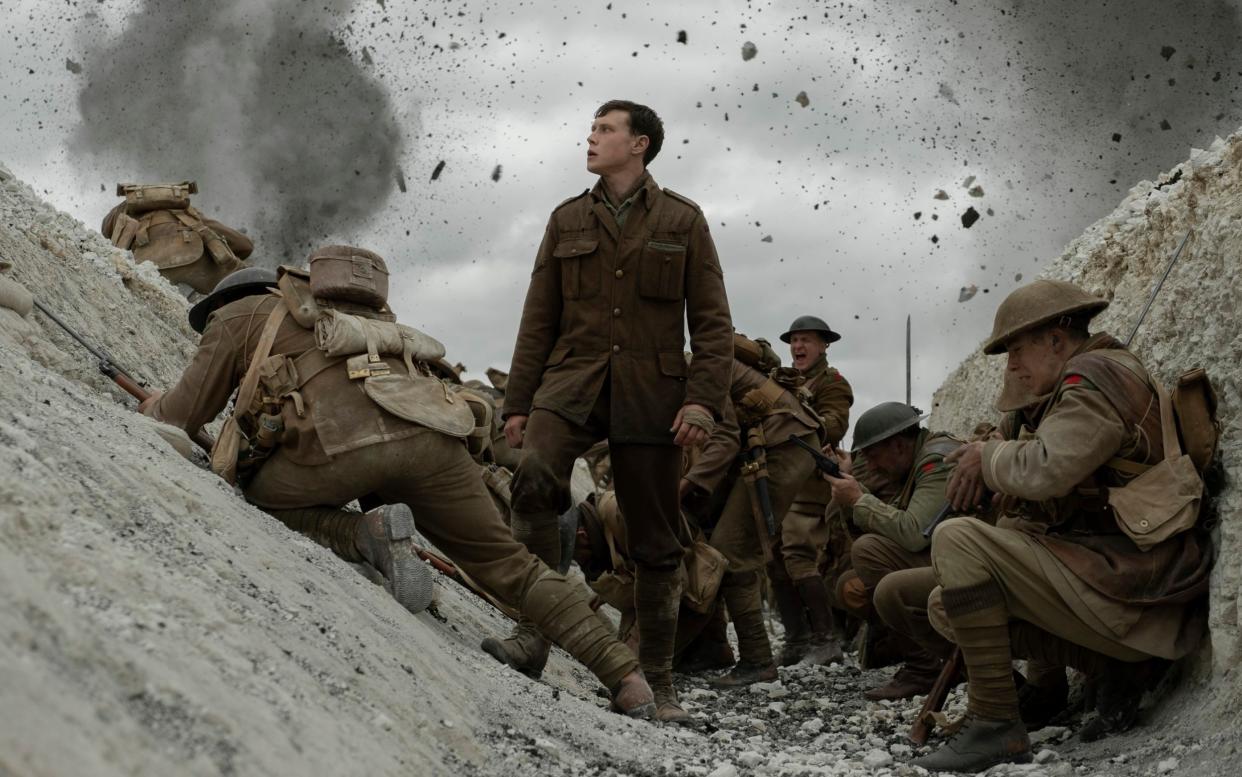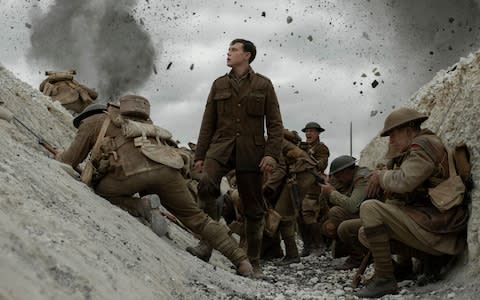1917 review: Sam Mendes’s film may have won two Golden Globes, but it feels more like a lifeless video game

Dir: Sam Mendes; Starring: George MacKay, Dean-Charles Chapman, Benedict Cumberbatch, Claire Duburcq, Colin Firth, Richard Madden, Andrew Scott, Mark Strong. Cert TBC, 118 mins.
One of the most devastating manoeuvres in the history of negative Oscar campaigning was carried out in the 1999 season, when word was successfully put about – by the office of Harvey Weinstein, no less – that Steven Spielberg’s Saving Private Ryan didn’t amount to much more than its undeniably impressive opening 27 minutes.
You sense that slur would be received as rapturous praise by Sam Mendes’s 1917, now the winner of two Golden Globes (Best Drama and Best Director).
In spirit, Mendes’s film is those 27 minutes and nothing but, showily stretched out to feature length.
One difference is the setting, though in time rather than place: instead of the D-Day beaches and the torn-up countryside beyond, 1917’s story unfurls in northern France during World War One, where two young British soldiers, played by George MacKay and Dean-Charles Chapman, have been charged by Colin Firth’s deathly solemn general with spiriting an urgent message that could save 1,600 lives across unfathomably deadly terrain.

Shot by the master cinematographer Roger Deakins, 1917 presents the entirety of their mission as if it unfolds in just two long and head-spinningly complex shots, the first of which lasts for around an hour and ten minutes – though of course in reality it is made up of more, stitched together invisibly for the most part.
The aim is a cinema of full body immersion, but the novelty is played up so relentlessly that I kept feeling as if I was watching a multi-million-pound version of one of those impossible marble run videos on YouTube, where a home-made Heath Robinson contraption clicks and whirs away precariously for ten or 15 minutes in someone’s living room.
Mendes’s film is as relentlessly, even pulverisingly ingenious as one of those – and unfortunately about as moving as one, too. I can’t recall the last time I was so staggered by a film’s craftsmanship while feeling almost nothing else about it at all – little fear, less sadness, and barely a spark of actual excitement at anything beyond the high-wire nature of the filmmaking enterprise itself.
The first of Mendes’s two James Bond pictures, Skyfall, was heavily indebted to Christopher Nolan’s The Dark Knight, and 1917 is likewise in the pockets of Nolan’s own wartime masterpiece Dunkirk – though the comparison, which 1917 all but insists on while squeezing your hand and grinning, is flattering to Mendes’s film in the extreme.
Despite its sweeping vistas of doomed privates clambering out of trenches and the shadows of bomb-blasts dancing madly across ruined towns, there is no big-picture sense of the folly or grandeur of warfare here.
Instead the conflict feels more like a video-game – a series of increasingly difficult and hair-raising challenges that have to be surmounted in order, interspersed with thin scripted encounters with various non-player characters.
These roles are mainly taken by familiar faces from the British period-drama scene, though they’re plopped so methodically throughout Mendes and Krysty Wilson-Cairns’s forward-marching script that when, say, Benedict Cumberbatch appears as Colonel Mackenzie, commander of the imperilled 2nd Battalion, I defy you not to think: oh look! Benedict Cumberbatch!
Its early January release date signals that 1917 is a foregone awards season contender, and it will be hard to object to its probably ubiquitous presence on a point-by-point basis. The sprawling open-air sets – which were mostly built on Salisbury Plain, but also include a nearly mile-long warren of trenches constructed at RAF Bovingdon in Hertfordshire – are superhuman coups of production design; Mendes’s direction is meticulous; Deakins’s cinematography a once-a-lifetime feat.
Let there be no doubt that everyone involved with 1917 gave their all to the exercise. But its ultimate status as an exercise is, likewise, without doubt.
1917 will be released in UK cinemas on Friday

